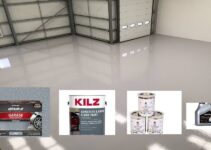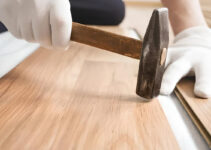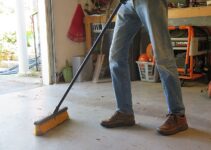Water Pooling in Garage
Are you noticing water pooling on your garage floor? Water pooling in the garage can be caused by a variety of different issues and can result in damage to the structure of your home.
We will discuss some of the most common causes of water pooling in your garage, as well as provide solutions for how to fix the issue. Read on to learn more about why water is pooling in your garage and what you can do about it.
Check for cracks in your foundation
The foundation of your garage is the most important part of keeping water out. If there are any cracks in the concrete or mortar, water can seep through and pool up in your garage.
To check for cracks, start by doing a thorough visual inspection of the walls and floor. Look for any chips, holes, or other signs of wear and tear in the foundation.
Pay special attention to the edges and corners, as these areas are particularly vulnerable to water damage.
If you notice any signs of damage or cracking, you should contact a professional right away.
They will be able to assess the severity of the problem and recommend the best course of action. In some cases, you may need to patch up small cracks with a sealant.
In more serious cases, you may need to have your foundation repaired or even replaced entirely. Taking care of this problem now can save you a lot of time and money in the future.
Inspect your gutters and downspouts
One of the most common causes of water pooling in your garage is a blocked gutter or downspout. If your gutters are clogged or damaged, water can back up into the eaves and eventually run down into the garage.
To prevent this from happening, you should inspect your gutters and downspouts regularly and clear away any debris or leaves that may have built up.
You should also check for any cracks, holes, or separations in your gutters. These openings can allow water to bypass the gutter system and pour directly onto the ground next to your home.
If water is pooling around the foundation of your house, it can eventually make its way into the garage.
Finally, check the connections between your gutters and downspouts. If the connections aren’t secure, water can leak from the gutters and seep into the ground or splash onto nearby walls and windows. This can lead to water damage both inside and outside of your home.
If you find any issues with your gutters and downspouts, you should contact a professional right away to have them fixed. This will help ensure that rainwater is properly diverted away from your home and garage.
Look for signs of leaks in your plumbing
If water is pooling in your garage, there’s a chance that the problem is related to a plumbing issue. If you have exposed pipes, check them for signs of leaks.
Leaks can sometimes be difficult to detect because they may be slow and steady, so inspect carefully for any signs of moisture or water stains.
It’s also important to check for any odd smells or noises coming from the pipes, as these could be indicators of a leak. In addition, take the time to look at all of the valves, fittings, and other components of your plumbing system. If you spot any corrosion or damage, this could be a sign that there is a leak somewhere.
If you are not comfortable checking your plumbing yourself, it’s best to contact a professional plumber. They can inspect your system thoroughly and make any necessary repairs or replacements.
It’s also a good idea to get your plumbing checked regularly as part of your home maintenance routine. That way, you can catch any problems early on and avoid bigger, more expensive repairs down the line.
Check for condensation on your AC unit
If you’re noticing water pooling in your garage, it’s important to check for condensation on your AC unit. This is because if your air conditioner is running too often, it can produce a lot of moisture.
To check for condensation, look for signs of dripping or excess moisture around the AC unit. I
f the condensation seems excessive, it’s best to have a professional inspect it to make sure everything is functioning properly.
The condensate drain line of the AC unit can also become clogged. This can cause water to back up and overflow into your garage.
To prevent this from happening, regularly flush out the drain line with a mixture of bleach and water. If this doesn’t solve the problem, it might be time to call a professional to investigate further.
Take action to fix the problem
Once you have identified the cause of the water pooling in your garage, it’s time to take action to fix the problem.
If the issue is a cracked foundation, it is important to repair it as soon as possible to prevent further damage. If the crack is minor, you may be able to patch it with a concrete sealer or epoxy; if the crack is larger, you should contact a foundation specialist who can evaluate the situation and advise you on the best course of action.
If the problem is related to your gutters and downspouts, then it is important to clean out any debris and ensure that they are connected properly and functioning correctly.
You should also consider installing gutter guards or covers to reduce the amount of debris that enters them.
Leaks in your plumbing can be tricky to diagnose and fix, so it is important to hire a professional plumber to inspect your pipes and identify any potential issues. Once identified, you should take steps to fix any leaking pipes.
Finally, if the issue is condensation from your air conditioning unit, you should consider insulating or wrapping any exposed parts of the unit, such as the condenser coils, with a foam insulation wrap.
This will help reduce the amount of moisture that accumulates around your unit.
No matter what the cause of the water pooling in your garage is, it is important to take action as soon as possible to prevent further damage.
By following these tips and taking the necessary steps to fix the problem, you can ensure that your garage stays dry and safe for years to come.


